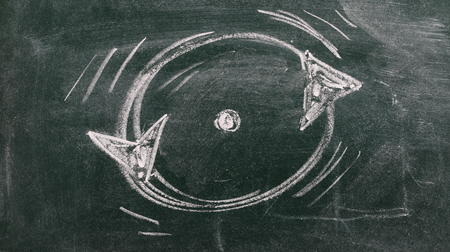 A personal hell is stuck on repeat in your head.
A personal hell is stuck on repeat in your head.
Your brain endlessly replays the day everything went wrong. That traumatic event could have been a rape, an accident, crash, combat, or abuse. You remember… and you wish you could forget.
On the days you can push the memories away, they claw at you from your nightmares. No matter how far you try to run, the memories chase you like the villain in a bad 80s movie.
“Why can’t I move on?”
You’ve tried everything you can to overcome the thoughts of that traumatic experience.
Pushing the thoughts away, avoiding your triggers, and not leaving the house do not eliminate those thoughts. They only isolate you from others and life in general.
Trying to de-stress, using booze or drugs, and burying yourself in work doesn’t help. Not for long, anyway.
Nothing has helped. The more you try to escape, the tighter the stress wraps around you.
 Don’t be fooled!
Don’t be fooled!
Many people out there promise the answer to traumatic memories, offering approaches ranging from new age sound baths, “praying harder,” and magnetic bracelets to supplements and vitamins. That’s not how it works.
There is SO much research on how our brain heals from trauma. Mountains of data exist on what works and what doesn’t.
It’s nice to know someone already figured this out. You have a deck stacked in your favor to succeed with the right approach.
EMDR helps get you unstuck.
EMDR (Eye Movement Desensitization Reprocessing) is a “gold standard” therapy for trauma healing. It leverages your brain’s inherent ability to heal under the right conditions. EMDR works by shifting focus from the left side of your brain to the right side repeatedly. Much like how (when people lived in the wild), we might scan the horizon left and right for signs of danger.
Deliberately shifting attention across the brain is called “Bilateral Stimulation (BLS)” and can be an essential tool in helping our brain “clear out” old negative experiences. Eye movements or “tapping” help your brain process the past, present, and future. The experience is almost like scanning for danger. In seeing none, your brain adapts, releases the anxiety, and heals.
First, we will learn more about you, your strengths, and how you’ve managed to cope with your experiences (in ways that have been helpful or not so helpful). We will spend time developing additional tools, skills, and resources to help you manage stress. Later, you will identify specific targets that you feel require further work.
Some people prefer EMDR over other trauma therapies because they prefer not to discuss details of what happened out loud. In EMDR, this is perfectly acceptable, as you do most of the work silently, in your mind. You’ll learn concrete weekly skills for managing stress in and out of the session. No heavy stuff gets unpacked before you’re ready to handle it.
 Trauma won’t define you anymore!
Trauma won’t define you anymore!
We’ll walk side by side through processing specific (and agreed upon) memories. Each one you work through will be like dominos falling – each one accelerating your healing. Eventually, your brain will do what it’s been trying to do all along – heal.
Release from trauma helps you envision and create the life you’d like to live.
Freed from the torment of upsetting memories, we envision what you’d like to do with your newfound peace and who you would like to have in your relationships.
I specialize in EMDR and am ready to help you get unstuck. Contact me today, and we can discuss the process: (312) 270-0098.

